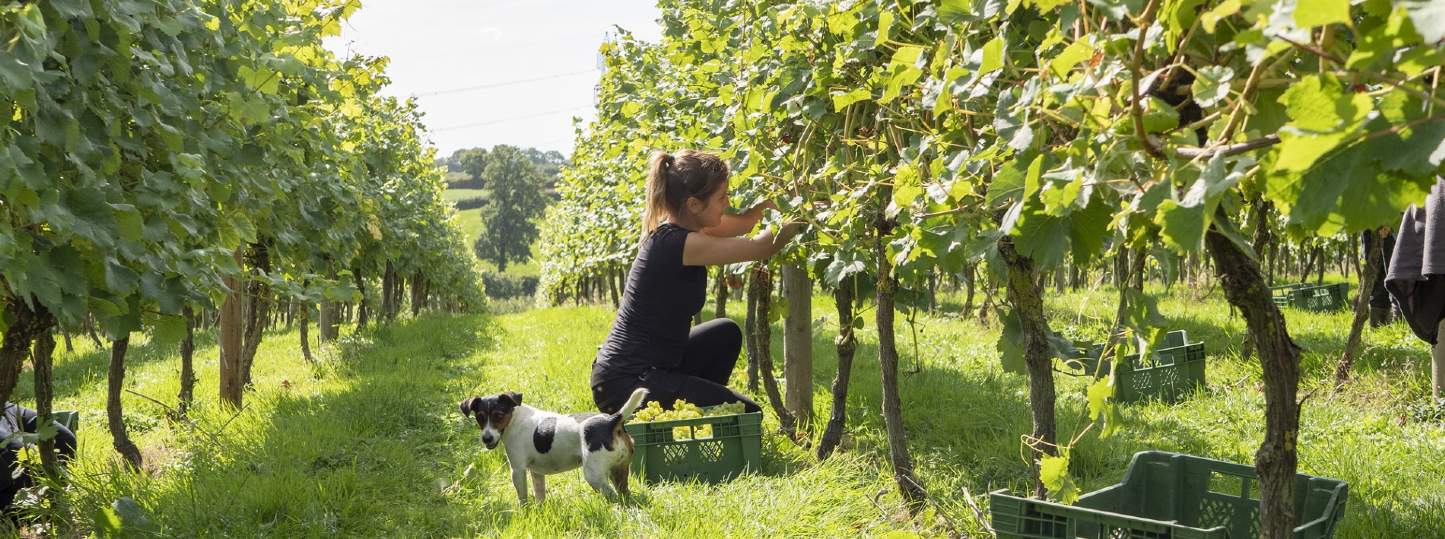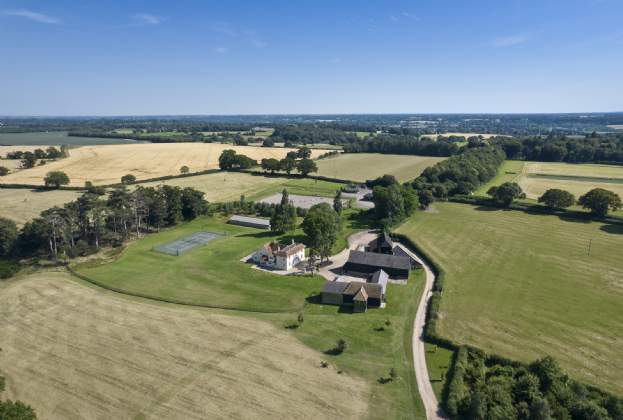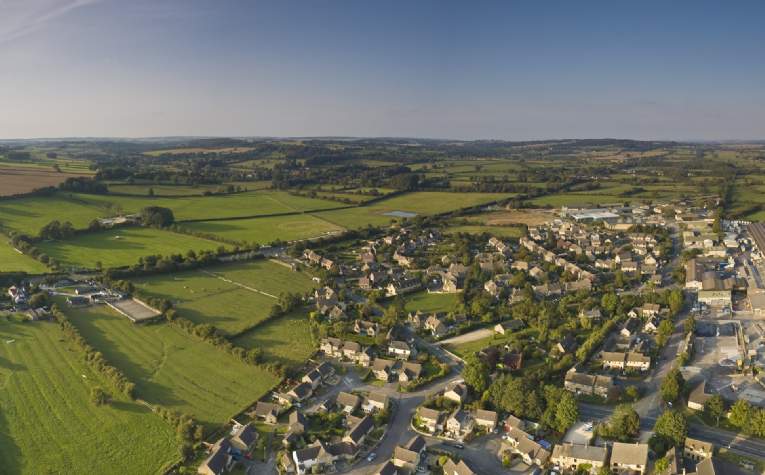The UK wine industry is thriving, and in 2023, it achieved a significant milestone with a record-breaking grape harvest – an average yield of 9.6 tonnes per hectare, translating to approximately 21 million bottles of wine. This marks a substantial increase of 7.9 million bottles from the 2018 output, the last “bumper yield year”.
According to WineGB there are now 4,209 hectares of land under vine in the UK. The increasingly temperate UK climate, combined with advancements in suitable grape varieties and winemaking techniques, has paved the way for the UK to become a serious player in the global wine industry.
UK climate and conditions: impact on viticulture
Over the last 60 years, the UK’s climate has undergone subtle yet significant changes, creating more favourable conditions for grape cultivation. Unlike in other parts of the world where climate change is causing adverse effects on some of the most renowned wine regions, the UK's rising temperatures have prolonged the growing season, allowing for enhanced grape ripening, resulting in the production of higher-quality grapes and, consequently, brilliant wines.
The term "terroir," originating from French, encompasses the multitude of environmental factors influencing the taste and quality of wine. These factors include the characteristics of the soil, the climate, the topography, and all other environmental conditions that play a role in the growth and maturation of grapevines. Some areas in the South of England bear a striking resemblance in terroir to the Champagne region, primarily due to their similar chalk-based soils, which has led to comparisons being made between English sparkling wine and champagne.
Sustainable wine production in the UK
The viticultural industry in the UK is currently undergoing a sustainability revolution. New sustainable standards are being introduced for British winemaking, including the Sustainable Wines of Great Britain (SWGB) certification. The SWGB guidelines prioritise soil health, biodiversity, carbon footprint reduction, and integrated pest management in vine growing. Additionally, SWGB has a set of winemaking standards that focus on responsible resource use in the wine-making process. Denbies Wine Estate, a SWGB producer, made history as the first UK vineyard and winery to produce certified Net Zero wine. As consumers become more eco-conscious, sustainable practices are essential for the industry’s long-term viability.
Wine tourism and social value
Wine tourism is rapidly gaining momentum; in 2023, an impressive 1.5 million visits to vineyards in the UK were recorded, a notable 55% increase from the previous year. This illustrates the growing appeal and interest in wine tourism among British consumers. The concept of wine tourism offers vineyards an exceptional opportunity for diversification and expansion. By providing a range of experiences such as wine tastings, guided tours of vineyards, opportunities for local or artisanal shopping, and the availability of on-site accommodation, vineyards can significantly enhance the overall experience for visitors. These businesses benefit even more by offering venue hire for events and gatherings, including weddings, which can be a lucrative opportunity.
The thriving wine tourism industry significantly contributes to creating local jobs. This extends beyond vineyard owners, workers, and winemakers to encompass a diverse workforce, including tour guides, tasting room staff, event coordinators, and hospitality staff. These roles provide increased employment opportunities within viticulture. In 2023, WineGB statistics reported 2,300 full-time and 8,300 part-time employees in the wine industry.
Vineyards are not just places to enjoy wine; they also serve as educational centres, imparting knowledge about viticulture, winemaking, and sustainability. Visitors can learn about grape varieties, terroir, and the winemaking process. Furthermore, vineyards contribute to rural access, enabling visitors to appreciate beautiful landscapes and engage with nature and local communities. By hosting open days and events, vineyards strengthen community bonds and foster a sense of belonging, bringing people from all backgrounds together and promoting social cohesion and dialogue.
Wine and more
UK viticulture goes beyond just producing award-winning wines. Vineyards and wineries serve as multifaceted provisions contributing to rural economies, tourism, and community interaction. The vineyards serve as a platform for education, promoting sustainable practices, and fostering a sense of community.
As we raise our glasses to the success of British wines, we also toast to the social value these vineyards bring to rural areas. So, the next time you sip on a glass of English wine, remember, it’s not just a drink; it’s a testament to the resilience and innovation of the UK’s viticulture industry.

.jpg)
.jpg)

.jpg)
.jpg)
.jpg)
.jpg)

.jpg)
.jpg)